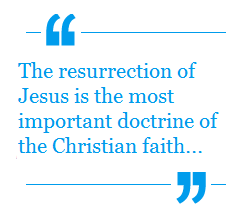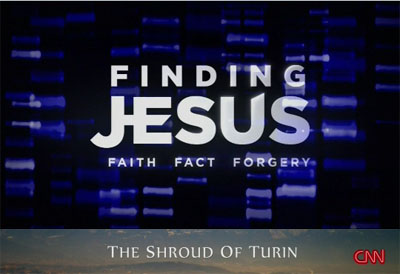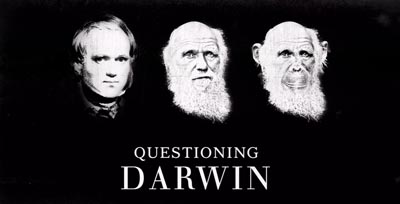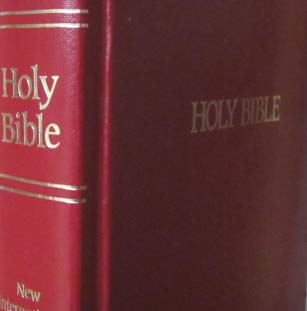| The series “AD – The Bible Continues” presents many strong evidences of why the resurrection of Jesus is true. |
Why believe in Christianity?
What makes Christianity different from any other religion?
Why not believe in other religions?
What makes Jesus different from the founder of other religions?
How do you know Christianity is true?
Why should I believe in Jesus?
The answer to these an many other question about the authenticity of the Christian faith is the same. That which:
– distinguishes Jesus and Christianity from any other religion,
– validates that Christianity is true, and
– proves that Jesus is the son of God
is the same fact: the resurrection of Jesus Christ from the dead.

No other religion has a founder who has proved he is the Lord of Life by showing mastery over death by being raised from the dead. This is precisely the point scripture makes when it proclaims:
…who through the Spirit of holiness was declared with power to be the Son of God by his resurrection from the dead: Jesus Christ our Lord. (Rom 1.4)
The resurrection of Jesus is the most important doctrine of the Christian faith, because without the resurrection there is no point to the Christian faith, and indeed no faith at all. Or as the apostle Paul put it:
And if Christ has not been raised, our preaching is useless and so is your faith.
And if Christ has not been raised, your faith is futile; you are still in your sins.
1 Cor 15.14, 17
It is no wonder then that of all the doctrines that critics, liberal scholars and those who wish to destroy Christianity could take aim at, the one they choose to attack early, often and most viciously is the teaching that Jesus Christ rose physically from the dead, after having being put to death on a Roman cross and entombed. Continue Reading






 Though they’ll never admit it, most evolutionists adhere to evolution as followers in any other religion adhere to their faith.
Though they’ll never admit it, most evolutionists adhere to evolution as followers in any other religion adhere to their faith.

